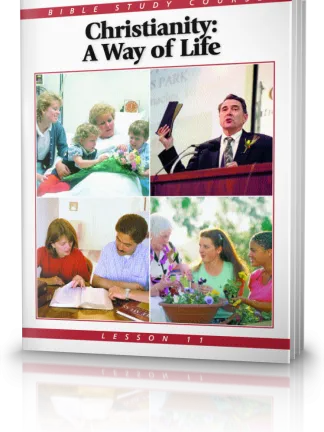Observing God's Sabbath

If we love God and desire a close relationship with Him, we need to spend time honoring Him and drawing close to Him by observing the Sabbath.
Most nations observe holidays to honor national heroes. For example, Americans observe Presidents' Day, Memorial Day and Veterans' Day to honor some who have served their country. Even in the workplace, respect and honor are displayed through traditions such as employee picnics, Secretaries' Day and Bosses' Day. Honoring family members on Mothers' Day, Fathers' Day or their wedding anniversaries contributes to keeping familial relationships alive and healthy.
If we love God and desire a close relationship with Him, we need to spend time honoring Him and drawing close to Him. M. Scott Peck, in his best-selling The Road Less Traveled, comments on the importance of shared time in loving relationships: "When we love something it is of value to us, and when something is of value to us we spend time with it, time enjoying and time taking care of it. Observe a teenager in love with his car and note the time he will spend admiring it, polishing it, repairing it, tuning it. Or an older person with a beloved rose garden, and the time spent pruning and mulching and fertilizing and studying it. So it is when we love children; we spend time admiring them and caring for them. We give them our time" (1978, p. 22).
Since this principle is applicable to the human beings we love, should it not also be applicable to our relationship with our God?
Our traditions encourage us to take the time to honor those we respect. But how many will take the time to observe the sacred sabbaths and holy convocations specifically designated in the Scriptures for honoring God?
Are Christians instructed to assemble together regularly?
"And let us consider one another in order to stir up love and good works, not forsaking the assembling of ourselves together, as is the manner of some, but exhorting one another, and so much the more as you see the Day approaching" (Hebrews 10:24-25).
Do the Scriptures tell us on which day we should assemble to worship and honor God?
"There are six days when you may work, but the seventh day is a Sabbath of rest, a day of sacred assembly" (Leviticus 23:3, NIV).
"... You must observe my Sabbaths. This will be a sign between me and you ... so you may know that I am the LORD, who makes you holy" (Exodus 31:13, NIV).
"Remember the Sabbath day, to keep it holy" (Exodus 20:8).
God explains to us when we should formally assemble to honor Him. He has set aside the seventh day of every week for us to come together to improve our relationship with Him. He wants to keep that relationship alive and growing. He has set apart the Sabbath as special holy time for us to privately draw closer to Him and improve our relationship with Him.
Yet most people believe that observance of the seventh-day Sabbath is no longer important to God — that it does not matter which day we observe. By celebrating a day of their own choosing, they ignore that our Creator has specifically defined the day for us to assemble to worship Him. In the Fourth Commandment He tells us to observe the seventh day of each week.
If we believe we are to live by every word of God, as Jesus commanded (Luke 4:4), we simply cannot ignore this Commandment. We cannot honestly say we believe in keeping the Ten Commandments, then immediately contradict ourselves by discarding or changing the Fourth Commandment, which tells us to remember the Sabbath and keep it holy.
What else does God expect of us on His Sabbath day?
"Six days you shall labor and do all your work, but the seventh day is the Sabbath of the LORD your God. In it you shall do no work ..." (Exodus 20:9-10).
"'If you keep your feet from breaking the Sabbath and from doing as you please on my holy day, if you call the Sabbath a delight and the LORD's holy day honorable, and if you honor it by not going your own way and not doing as you please or speaking idle words, then you will find your joy in the LORD, and I will cause you to ride on the heights of the land and to feast on the inheritance of your father Jacob.' The mouth of the LORD has spoken" (Isaiah 58:13-14, NIV).
The Sabbath is a time when our normal occupational labor should cease. God has set aside the Sabbath as a special time for extra rest, extra personal prayer and more Bible study and a day to assemble for scriptural instruction and fellowship.
The Sabbath is often falsely portrayed as a burden that Christ came to remove. But God's Word never describes His Sabbath as a burden or says that Christ abolished it. Rather, the Scriptures describe it as a delightful time—a time to build our relationship with God and our brethren in Christ. Those who love God will delight in all of these special Sabbath activities. But those who only pretend to love God may indeed consider the Sabbath a burden. Because of their own attitudes, they will consider it an imposition on their own time.
Why does God say our observance of the seventh day of the week is important to Him?
"For in six days the LORD made the heavens and the earth, the sea, and all that is in them, and rested the seventh day. Therefore the LORD blessed the Sabbath day and hallowed it" (Exodus 20:11).
"Moreover I also gave them My Sabbaths, to be a sign between them and Me, that they might know that I am the LORD who sanctifies them" (Ezekiel 20:12).The seventh-day Sabbath is an identifying sign of the people who worship the Creator God. The Sabbath reminds us every week that the God we worship created the universe and that we must worship only Him—never the things He created. It provides us with extra and special private time to draw closer to Him.
Idolatrous religions, in varied ways, worship the creation instead of the Creator (Romans 1:22-25). Through the theory of evolution much of the academic and scientific world subscribes to and promotes an atheistic religion founded on the premise that the creation is its own creator. It denies the existence of the Creator God. (If you would like solid scientific evidence demonstrating the impossibility of life spontaneously evolving without a Creator, be sure to request your free copies of the booklets Life's Ultimate Question: Does God Exist? and Creation or Evolution: Does It Really Matter What You Believe?)
Did our Creator set us an example of Sabbath observance by resting on it?
"And on the seventh day God ended His work which He had done, and He rested on the seventh day from all His work which He had done. Then God blessed the seventh day and sanctified it, because in it He rested from all His work which God had created and made" (Genesis 2:2-3).
Did Jesus Christ, our perfect human example, make it His custom to assemble with others on the Sabbath?
"So [Jesus] came to Nazareth, where He had been brought up. And as His custom was, He went into the synagogue on the Sabbath day ..." (Luke 4:16).
Does Sabbath observance include a command to assemble with others of like belief?
"Six days shall work be done, but the seventh day is a Sabbath of solemn rest, a holy convocation ..." (Leviticus 23:3).
The Hebrew word translated "convocation" here conveys the meaning of a summons to an assembly. It implies an official summons to worship. The New International Version translates this verse: "There are six days when you may work, but the seventh day is a Sabbath of rest, a day of sacred assembly. You are not to do any work; wherever you live, it is a Sabbath to the LORD."
Is this instruction for God's people to regularly assemble repeated in the New Testament?
"And let us consider one another in order to stir up love and good works, not forsaking the assembling of ourselves together ..." (Hebrews 10:24-25).
"For both He who sanctifies and those who are being sanctified are all of one, for which reason He is not ashamed to call them brethren, saying: 'I will declare Your name to My brethren; in the midst of the assembly I will sing praise to You'" (Hebrews 2:11-12).
Even our relationship with Christ is framed in a setting that includes the assembling of God's children. Meeting with others of like mind to learn more about God through the study of His Word is one of the ways we show God we are interested in Him and His people.
Weekly Sabbath observance is an important part of the kind of life God wants for us. (For a thorough explanation of why and how we should observe the seventh-day Sabbath, be sure to request your free copy of Sunset to Sunset: God's Sabbath Rest.)
Does God want us to assemble on other sacred occasions to worship and honor Him?
"Three times you shall keep a feast to Me in the year: You shall keep the Feast of Unleavened Bread ...; and the Feast of Harvest, the firstfruits of your labors which you have sown in the field; and the Feast of Ingathering at the end of the year, when you have gathered in the fruit of your labors from the field" (Exodus 23:14-16).
God tells us to meet to worship Him on the feast days He commands. Although it is beyond the scope of this lesson to cover the importance and meaning of God's annual festivals, they are covered in the next lesson. In the meantime be sure to request your free copy of God's Holy Day Plan: The Promise of Hope for All Mankind.







